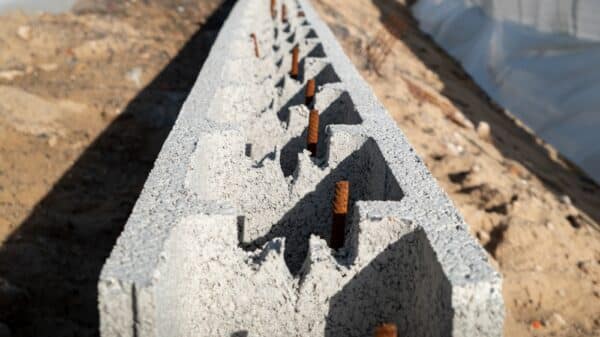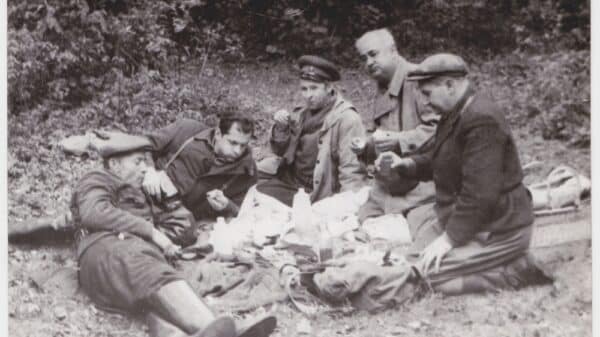Back in medieval ages, dental coverage wasn’t a thing. Dealing with tooth pain caused by decay involved a trip to the local barber who would extract the affected tooth without any numbing agents. Despite the absence of formal dental care, there were certain methods to uphold dental cleanliness.
To maintain clean and shining teeth, people would utilize a coarse woolen fabric and reports indicate they also utilized toothpaste and mouth rinses. Furthermore, it was customary to chew on mint or cloves for fresh breath.
Dining Implements
During medieval times, the use of forks was uncommon. Commoners used their hands while nobility employed spoons and knives crafted from precious metals. Regardless, both societal classes adhered to manners, which included washing before and after meals. The usage of a fork was even deemed inappropriate in certain scenarios.
Despite the perception of inadequate cleanliness, individuals during medieval times adhered to manners, including consistent washing.
Medieval Flooring Accumulated Dirt
Middle Age floors were adorned with rushes, which were periodically replaced. However, beneath the rushes, dirt, fleas, lice, and vermin thrived. Attempts were made to maintain the floors’ freshness by incorporating flowers or herbs, yet this failed to halt the propagation of infections and ailments.
Despite endeavors to upkeep the floors’ tidiness, they still fostered impurities, aiding in the dissemination of illnesses.
Ablution Practices in the Middle Ages
Bathing customs differed among varied social classes. While some monarchs bathed in tubs filled with warm water and aromatic herbs, the commoner frequented communal bathhouses that were sometimes forbidden by ecclesiastical leaders due to apprehensions about immoral conduct. Following the Black Plague, communal bathhouses witnessed a decline owing to apprehensions of contagion.
Bathing amenities were prevalent but experienced a decline as a result of worries about disease transmission post the Black Plague.
Medieval Procedures Were Frequently Fatal
During the Middle Ages, medical care resembled more of a palliative nature, and surgeries were frequently conducted by barbers or butchers. Anesthesia was not administered, and instruments were not sterilized, leading to deadly infections in numerous cases.
Surgeries during the Middle Ages frequently resulted in fatalities due to the absence of anesthesia and sterilization of instruments.
Surprising Utilizations of Urine
Urine saw various applications in medieval times, including wound cleansing and as a laundering agent. The aristocracy even employed it as a facial scrub, akin to lye, an alkaline cleaning substance.
Urine possessed diverse functions in medieval times, including cleansing and laundering objectives.
Beard Trend and Grooming in the Middle Ages
Shaving was not a common practice among peasants in medieval times, and those who did shave typically sought the services of a barber. Beards were fashionable and handy due to the absence of mirrors and proper razors. Curiously, contemporary studies suggest that men with clean-shaven appearances may host harmful bacteria on their skin compared to their bearded counterparts.
In the Middle Ages, shaving was an uncommon practice, and beards were deemed fashionable. Intriguingly, modern research implies that men without facial hair may bear harmful bacteria on their skin.
Sleeping Arrangements in Medieval Times
While the affluent nobility enjoyed opulent beds with protective canopies filled with feathers, commoners had to settle for straw mattresses, often plagued by pests. Their bedding, composed of straw, was occasionally heaped into a mattress, which was sometimes woven tightly into a bed. Moreover, not all beds were flat; the commoners often slept on an inclined bed akin to a recliner.
The mattresses, substituted and renewed only once a year, swarmed with fleas, lice, and bedbugs. Fur blankets and feather bedding, while cozy, also attracted parasitic pests such as fleas.
Facilities for Personal Needs in Medieval Times
Within Medieval fortresses, extending masonry walls known as garderobes functioned as lavatories, enabling waste to drop into the moat. Urban sewage systems were absent during the Middle Ages, and it took numerous centuries for Medieval urban centers to shift to functional municipal sanitation systems.
Depending on the size of the castle’s population, moats might have emitted a pungent odor due to the waste discharge system.
Toilets and Latrines in Medieval Times
Garderobe latrines, featuring apertures that led straight to the surrounding moat, played a pivotal role in military defense tactics. Monasteries and commoners also had distinct restroom facilities, and communal conveniences were routinely emptied into cesspools, occasionally revamped into fertilizer for agricultural purposes.
Chamber pots were equally common indoors, and their contents were frequently thrown out of windows onto pathways.
Image Source: tomertu / Shutterstock






























